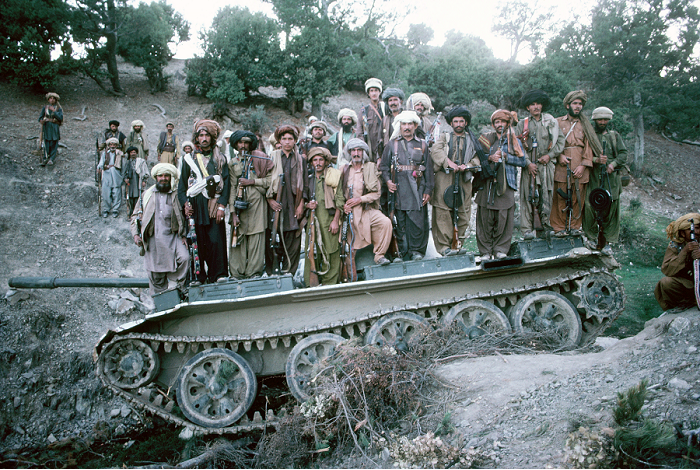THE RUSSIAN ARMY IS PUTTING ON A FASCINATING ANTIQUE SHOW IN UKRAINE
The Ukrainian intelligence service has reported the destruction of a Russian D-74 artillery piece on the battlefield. The destruction of a single howitzer on its own is fairly unremarkable against the scale of the fighting there until you realize that this gun was made in the 1950s and phased out by the Soviet Red Army in the 1970s.
We can put this together with reports that, having lost more than 6000 tanks, Russia is once again fielding T-55s. The T-55 was a great tank but its design dates from the end of World War 2. I last saw one being blown to smithereens by a British Challenger 1 during the first Gulf War in 1991.
Quite apart from the one million casualties Russia has suffered – and two million more will be required to take the remaining 25 per cent of the Donbass, according to a recent British intelligence update – even the most fervent and optimistic supporter of the tyrannical Russian regime must realize its army is at its last gasp.
Some suggest that the ancient D-74, which fires 122mm shells, is being used because Russia is running out of more modern and powerful 152mm shells but can get plentiful supplies of 122mm from North Korea which also uses these ancient weapons. Others surmise it is a further demonstration that Putin will keep fighting whatever the costs in equipment and human life.
Putin knows that if he fails he is unlikely to enjoy a peaceful retirement. Very unlikely.
Certainly Putin’s targeted strike on the British Council and European Union offices in Kyiv, in a cynical double tap attack, is a stiff middle finger to the coalition of the willing.
Sadly, the muted reaction from European capitals suggests he will get away with this unpunished and no doubt continue along similar lines as the Europeans pontificate about what to do next – not much, Putin hopes and probably expects.
But he would find British tanks and soldiers rather more challenging opponents than defenseless schools and hospitals.
As a military person it is hugely frustrating that our political leaders are being led on such a merry dance by Putin and also to a certain degree by Trump. With vastly superior military forces at their disposal they should be calling the shots rather than the Kremlin.
What is absolutely clear is that Putin has no interest in a peace deal and has no respect for the UK and the EU, as the recent attacks show.
Summoning Russian ambassadors for a stern telling off means nothing to Putin who exploits weakness – what is so frustrating is that we know he respects strength.
Trump’s mercurial negotiating skills seem to have actually hardened Putin’s stance even as his dwindling army has slowed to a halt in the Donbass and across the contact line. To use the American vernacular, now is the time to play hard ball. European armies are growing in strength and capabilities. Backed by US airpower and intelligence, which Trump is once again offering, they have the potential to change the reality on the ground in Ukraine.
At the very minimum, western air power and air defenses should be used to protect civilian targets in Ukraine – these are supposedly protected by the Geneva Conventions anyway.
Meanwhile on the battlefield Putin is clearly not far from running out of equipment altogether, as he is being forced to dust off ancient T-55s and D-74s. He is also running short of men. If the West stands firm behind Ukraine it cannot be long until the dictator is forced to negotiate.
Colonel Hamish de Bretton-Gordon was a British Army officer for 23 years and commanding officer of the UK’s Joint Chemical, Biological, Radiological and Nuclear Regiment and NATO’s Rapid Reaction CBRN Battalion. He is a visiting lecturer in disaster management at Bournemouth University. He has commented on chemical and biological weapons for the BBC, ABC and The Guardian and on tank warfare for the Daily Telegraph.


